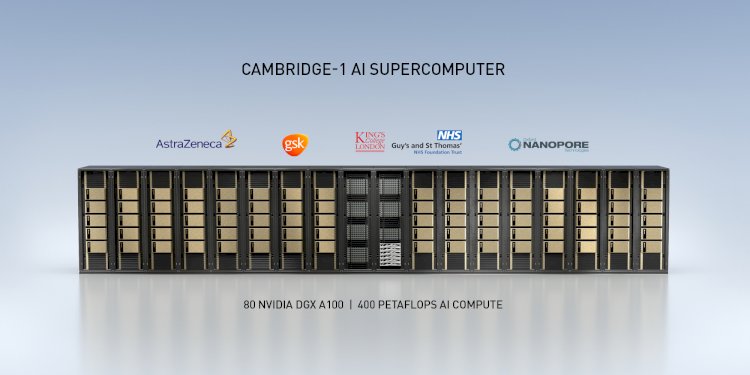The most powerful processor in the UK will use AI to discover new cures and get a better understanding of illnesses. The UK's most powerful supercomputer, which its designers believe will make illness prevention, diagnosis, and treatment better, faster, and less expensive, is now operating.
Supercomputing provides researchers with the capacity they need to model and forecast our environment, with the speed that can reach and even significantly high performance. Improving productivity and expanding the number of scientific simulations can have a significant influence on the amount and quality of their scientific simulations. NVIDIA GPUs now run the fastest supercomputers in the United States and Europe. Summit is the world's smartest supercomputer, merging high-performance computing (HPC) with artificial intelligence (AI) to offer over 200 petaflops of double-precision computing for HPC and 3 exaflops of mixed-precision computing for advancing scientific discovery in the United States. Cambridge-1 builds on the United Kingdom's position as a worldwide leader in life sciences, technology, and artificial intelligence (AI) by providing sophisticated infrastructure for current and future generations to conduct innovative research within the nation.
The GPU, invented by NVIDIA NASDAQ: NVDA in 1999, fueled the rise of the PC gaming sector and has revolutionised contemporary computer graphics, high-speed computing, and artificial intelligence. The company's groundbreaking work in accelerated computing and artificial intelligence is changing trillion-dollar sectors including transportation, healthcare, and manufacturing, as well as fuelling the rise of many others.
The concept capitalises on artificial intelligence (AI) in healthcare, which mixes large data with computer science to simplify problem resolution. The vice-president of healthcare at Nvidia states, “If you could imagine ganging up 10 refrigerators in a row and then having several rows of those refrigerators – that is the size and shape of this computer''. The United Kingdom has already made gains with huge datasets like the UK Biobank, which includes anonymised health and lifestyle records from half a million middle-aged Britons. AI for healthcare is thriving in the United Kingdom, with a variety of startups and bigger pharmaceutical firms mining the huge amounts of data available to identify possible medicines and determine why some people are prone to certain diseases.
Cambridge-1's initial collaborations will include AstraZeneca, GSK, Guy's and St Thomas' NHS Foundation Trust, King's College London, and Oxford Nanopore. Researchers will work to get a better understanding of illnesses like dementia, create breakthrough medicines, and enhance the precision of detecting disease-causing mutations in human genomes. Patient care is one area where the supercomputer can make a significant difference, according to Dr. Kim Branson, GSK's global head of artificial intelligence and machine learning. Existing medications in the field of immuno-oncology, for example, By using the patient's own immune system to combat cancer. However, it is not always clear whether patients will recover the most from these medicines.
According to Branson, Cambridge-1 may be critical to infuse this disparate information and developing big models to assist decide the best course of therapy for patients. Traditional drug development is costly, time-consuming, and has a poor success rate. The notion that robots may save researchers from the vast array of resources required to find a potentially powerful chemical.
It has long been claimed that it will be able to identify the medical problems that it will be used to cure. Having said that, Bulthuis is enthused about the supercomputer's potential. However, the technology is still in its infancy, and the hype has yet to be realised, according to Roel Bulthuis, director of the healthcare team at Inkef Capital, a Dutch venture capital firm focused on technology and healthcare.
“It's fantastic to see it in the UK ecosystem,” he adds. “Numerous European healthcare systems are not as far along in terms of knowledge about data and incorporating it into the healthcare system.” Because of its vast data sources, the United Kingdom possesses the necessary components to capitalise on this computing capability. It has access to a wide variety of clinicians as well as big structured databases such as the UK Biobank. According to GSK's Branson, no similar infrastructure of this magnitude exists anywhere.








